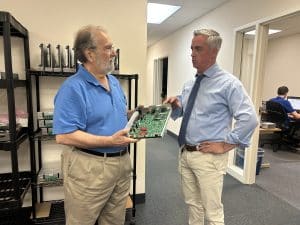In a crafty maneuver, the Pennridge School Board easily advanced Policy 119 toward a second reading and final passage by scheduling a Policy Committee meeting immediately prior to the March 27 Board Meeting.
In addition to the policy’s name now including the word “surveys,” it is also being recommended that the policy reflect a parental “opt-in” versus “opt-out” methodology for student participation in, especially, third-party surveys.
“I know people say that PAYS is worthwhile but over the years, as I’ve thought about it, I’m not sure,” board member Joan Cullen said at the January Policy Committee meeting. “If no one else wants to get rid of, to end, our involvement with PAYS that’s fine… I still would like to consider not having our students be subjects for third parties … let them go find a research subject somewhere else.”
PAYS, the Pennsylvania Youth Survey, is part of a collaborative partnership between Penn State’s EPIS (Evidence-based Prevention and Intervention Support) and the Pennsylvania Commission on Crime and Delinquency (PCCD).
The survey is offered to public, private and charter schools, it’s completely anonymous, and submissions that are obviously falsified are removed and not utilized in data analysis. There is no cost to any school for participating in PAYS.
A school-based prevention model, data provided by the survey affords educators the ability to increase academic success while reducing high-risk behavior issues.
“I think it’s really important for districts to have the data and to have a sense of what the kids are being challenged with every day,” said Diane Rosati, Executive Director of Bucks County Drug & Alcohol Commission, Inc. “And the more information that districts have, the better informed they are on what areas of concern are and how they can approach students. So it’s very important that they have the data.”
Anti-government paranoia has surrounded student surveys for decades. However, the Virginia-based right-wing group Parents Defending Education has recently picked up the torch. The Dark Money group specifically promotes “opt-in” versus “opt-out” survey participation for a reason: it discourages participation.
Parents Defending Education actively promotes the defunding of public education and receives untraceable, anonymous donations from ultra-conservatives and libertarians by way of Donors Trust.
Board member Ron Wurz had concerns regarding “opt-in” versus “opt-out” for PAYS because he believes it will greatly reduce participation, and that’s likely.
Significant time at the February Policy Committee meeting was spent discussing student, teacher and curriculum surveys, all of which would have been prohibited under the policy’s first draft. Superintendent Bolton advised that, as written, the constraint on surveys would have a significant impact on the curriculum. With specificity, however, the board focused on the PAYS Survey with some stating that many of the questions are inappropriate.
Cullen offered her opinion, stating “I still would like to talk about outside organizations to use our students for research purposes,” although the study data produced is primarily for school district and county use.
With the exception of Wurz, the balance of the board voted to stop participating in PAYS. “I would keep it unless we can find another source to get feedback,” said Wurz, the only dissenting vote.
“PAYS data can be and is used in grant applications to show the local need for the requested funding,” said Kirsten E. Kenyon, Office of Research, Evaluation and Strategic Policy Development for PCCD.
FAQ’s about the survey further details use of the data. “PAYS allows schools, districts, and communities to receive detailed reports… and also provide the community with a wealth of data to be used for grant writing, program and school safety planning, as well as targeting interventions to meet a school’s and the community’s specific needs.”
“We use the survey data to inform what students need,” said a representative for the North Penn School District. “The school counselors and administration analyze and determine if there is any additional support needed for students.”
For example, PAYS data that indicates an increase in bullying or Internet bullying allows the district to offer educational assemblies and make sure counselors are accessible, the North Penn spokesperson said.
Not only does PAYS provide school districts with data reflecting its student population, it also provides a combined data report for every county across Pennsylvania. The 2021 county-wide collective data is available on the Bucks County Drug & Alcohol Commission’s website.
Eliminating the collection of student data would be tremendously shortsighted and serve to epitomize the sentiment that ignorance is bliss, primarily because a school district can’t implement solutions if it’s unaware that problems exist.
Even if the district agrees to continue participating in the PAYS survey, the “opt-in” versus “opt-out” policy would present challenges to secure accurate results that reflect the Pennridge student population.
The book “The Wisest One In The Room”, authored by two renowned psychologists and Cornell University professors Thomas Gilovich and Lee Ross, illustrates the impact of “opt-in” versus “opt-out” utilizing organ donation.
In a study of 11 European Union countries in which organ donation was perceived as positive, the authors reported that “opt-out” generated nearly 100 percent participation versus “opt-in” that reflected approximately 15 percent participation.
Having passed a first reading and headed back to the Policy Committee for further editing, it is anticipated that all changes from the March meeting will be incorporated and Policy 119 will be brought back in April for final approval and passage.






